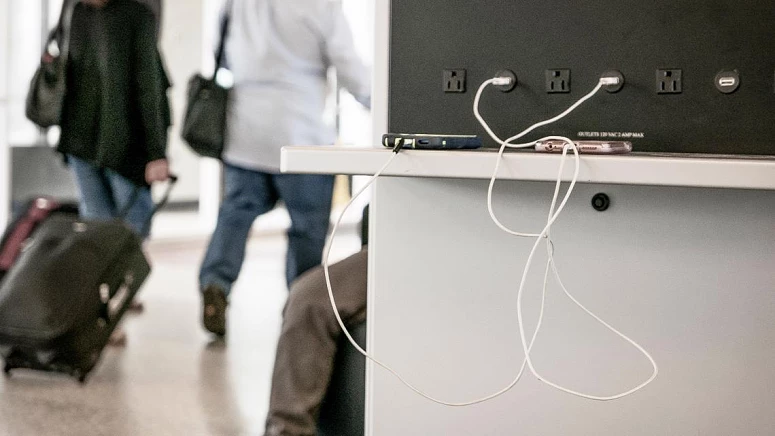
Beware of Public Smartphone Charging Points, FBI Warns
Public smartphone and tablet charging stations with USB ports can be a risky option worth trying to avoid. The alert is from the FBI which identified spy malware capable of diverting data at these points and suggests alternatives. Public charging stations
In airports, hotels, shopping centers and even in outdoor spaces, it is increasingly common to find public access USB ports to charge mobile phones, tablets and other electronic devices compatible with this type of input. They are useful, but they can be a risk worth trying to avoid, according to an alert recently released by the FBI.
Hackers Exploit Public Charging Ports to Steal Personal Data, FBI Alert Says
The US agency indicates that hackers managed to find a way to make these charging ports a means of transferring malicious software to the equipment that connects to them. This malware can be used to monitor affected equipment remotely or transfer personal information and access passwords to third parties.
The FBI alert was published on Twitter by the Denver Field Office and does not give details on specific locations where this type of malware has been identified, but the fact that an alert was issued is possibly a sign that it was not an isolated situation.
Avoid using free charging stations in airports, hotels or shopping centers. Bad actors have figured out ways to use public USB ports to introduce malware and monitoring software onto devices. Carry your own charger and USB cord and use an electrical outlet instead. pic.twitter.com/9T62SYen9T
— FBI Denver (@FBIDenver) April 6, 2023
As the warning states, when you need to use a public charging point, it is preferable to use an electrical outlet, which means that you must bring an adapter with you, in addition to a USB cable. The Federal Communications Commission, also from the United States, published a note on the same subject, where it also recommends preference for public electrical outlets, versus USB ports, according to the BGR website.
The FCC recommendations add that anyone who still has to use the USB ports available in public places should do so using a cable that only allows the equipment to be charged, thus protecting the inadvertent transfer of data to third parties. You should also always use your own USB cable. Even better is traveling with an extra battery or portable charger, the FCC also says.
The two North American organizations identify the technique of entering equipment to install malware, through USB charging stations, as “juice jacking”. Public charging stations
Protect Your Data: How to Stay Safe While Charging Your Devices in Public
One solution to avoid the potential risks associated with public charging ports is to use power banks. These portable devices can be charged before leaving home and carried in a bag or purse to provide an additional source of power for your electronic devices. This eliminates the need to rely on public charging stations altogether, reducing the risk of malware transfer or data theft. Powerbanks come in various sizes and capacities, making them suitable for different types of devices and varying usage needs. By carrying a powerbank, you can have peace of mind knowing that you can charge your devices securely, even when a power outlet or charging station is not available.










